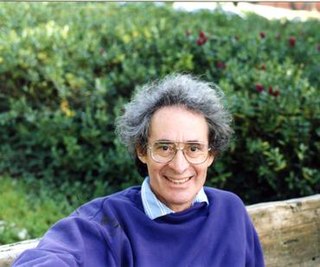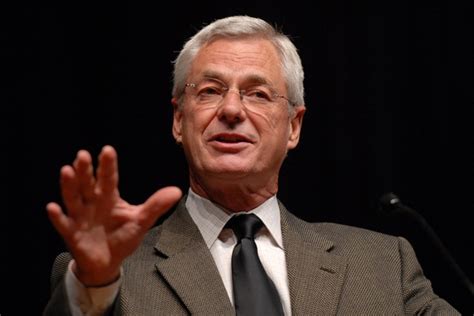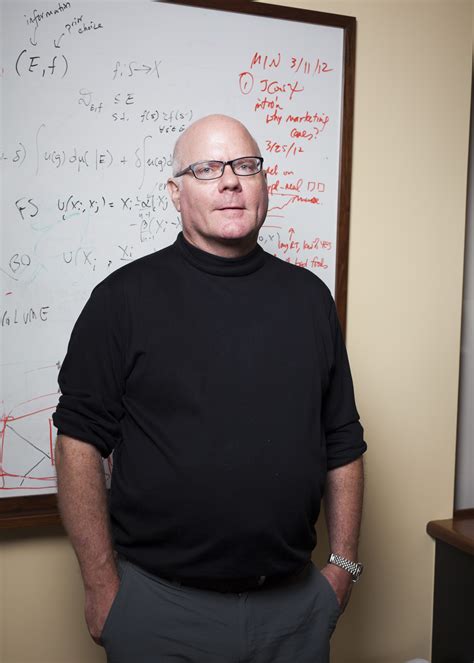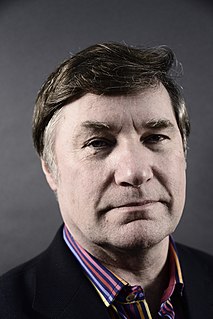A Quote by Bertrand Russell
... the word "theory" ... was originally an Orphic word, which Cornford interprets as "passionate sympathetic contemplation" ... For Pythagoras, the "passionate sympathetic contemplation" was intellectual, and issued in mathematical knowledge ... To those who have reluctantly learnt a little mathematics in school this may seem strange; but to those who have experienced the intoxicating delight of sudden understanding that mathematics gives, from time to time, to those who love it, the Pythagorean view will seem completely natural.
Related Quotes
This is a wonderful book, unique and engaging. Diaconis and Graham manage to convey the awe and marvels of mathematics, and of magic tricks, especially those that depend fundamentally on mathematical ideas. They range over many delicious topics, giving us an enchanting personal view of the history and practice of magic, of mathematics, and of the fascinating connection between the two cultures. Magical Mathematics will have an utterly devoted readership.
Here is a quilted book about mathematical practice, each patch wonderfully prepared. Part invitation to number theory, part autobiography, part sociology of mathematical training, Mathematics without Apologies brings us into contemporary mathematics as a living, active inquiry by real people. Anyone wanting a varied, cultured, and penetrating view of today's mathematics could find no better place to engage.
In however complex a manner this feeling may have originated, as it is one of high importance to all those animals which aid and defend one another, it will have been increased through natural selection; for those communities, which included the greatest number of the most sympathetic members, would flourish best, and rear the greatest number of offspring.
Game theory is a branch of, originally, applied mathematics, used mostly in economics and political science, a little bit in biology, that gives us a mathematical taxonomy of social life, and it predicts what people are likely to do and believe others will do in cases where everyone's actions affect everyone else.
We are all a little weird and life's a little weird, and when we find someone whose weirdness is compatible with ours, we join up with them and fall in mutual weirdness and call it love. Time is too slow for those who wait, too swift for those who fear, too long for those who grieve, too short for those who rejoice, but for those who love, time is eternity. I've fallen in love many times... always with you. What I need to live has been given to me by the earth. Why I need to live has been given to me by you. Love is just a word until someone comes along and gives it meaning.
The essential qualities of a true Pan Americanism must be the same as those which constitute a good neighbor; namely, mutual understanding, and through such understanding, a sympathetic appeciation of the other's point of view. It is only in this manner that we can hope to build up a system of which confidence, friendship, and good will are the cornerstones.
Mathematics is a logical method. . . . Mathematical propositions express no thoughts. In life it is never a mathematical proposition which we need, but we use mathematical propositions only in order to infer from propositions which do not belong to mathematics to others which equally do not belong to mathematics.
All our surest statements about the nature of the world are mathematical statements, yet we do not know what mathematics "is"... and so we find that we have adapted a religion strikingly similar to many traditional faiths. Change "mathematics" to "God" and little else might seem to change. The problem of human contact with some spiritual realm, of timelessness, of our inability to capture all with language and symbol-all have their counterparts in the quest for the nature of Platonic mathematics.
Thus metaphysics and mathematics are, among all the sciences that belong to reason, those in which imagination has the greatest role. I beg pardon of those delicate spirits who are detractors of mathematics for saying this . . . . The imagination in a mathematician who creates makes no less difference than in a poet who invents. . . . Of all the great men of antiquity, Archimedes may be the one who most deserves to be placed beside Homer.



































